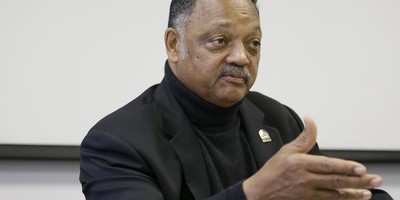China: State press announced a ban on burqas in public places in Xinjiang region, where the Uighur population resides. Most Uighurs are Muslims. Explaining the new ban,Xinhuasaid: "The regulation is seen as an effort to curb growing extremism that forced Uighur women to abandon their colorful traditional dress and wear black burqas."
"Burqas are not traditional dress for Uygur women, and wearing them in public places is banned in countries such as Belgium and France."
Comment: Chinese authorities also have banned long beards on men and fasting during Ramadan. They also maintain strict controls of mosques.
The Chinese have a prophylactic approach to controlling Islamic and other terrorism. They understand that wearing burqas and long beards are political acts of defiance as well as religious statements. Thus, the Chinese have chosen to ban and treat harshly the minor public acts of defiance as political crimes, while allowing the private practice of religion, for now.
This is a variation of "broken windows" policing. It also borders on being reverse terror. It is not completely effective, but the Chinese have not begun to exhaust the tactics in the communist repertoire for suppressing dissidence. Thus far, they appear to be trying to be civil in suppressing Uighur terrorism.
Kazakhstan-Ukraine: Update.Meeting in Astana, Kazakhstan, the foreign ministers of Germany, Ukraine, Russia and France failed to find enough common ground to proceed with a summit of leaders later this week. This ended the latest attempt to resolve the Ukraine crisis.
"The differences of opinion made clear how difficult it is to make progress along the path to a political solution, but also to a summit in Astana, which many expect, but which also needs to be prepared," German Foreign Minister Steinmeier said.
Recommended
He said that representatives from the respective ministries would meet in the coming days to see if they could bridge differences, and it was possible that the foreign ministers could meet again at short notice. "If there is progress made at that level in the coming days, then we are prepared to meet again next week and resume this discussion we began today," he told reporters.
Comment: The ministers provided no details on the sticking points. Before the talks, Ukraine insisted that it would take back the regions in secession and the leadership of the Luhansk and Donetsk said they would never give up their independence. There was never much of a basis for negotiating because neither side has been willing to compromise.
Egypt: Egyptian commentators have praised the al-Sisi government for solving a half-century old problem with the distribution of subsidized flour and bread. The government introduced rationing in the form of a "smart card" system that ensures even distribution and minimizes fights over bread.
Analysts wrote that President Abdel Fattah al-Sisi appears to be succeeding where his predecessors Hosni Mubarak and Mohamed Mursi both failed in reforming a system that has drained the state's finances while angering the population.
"In the time of Mubarak and Mursi, there was no organization at bakeries. People fought each other. Now we all take what we need and there's bread for all," said one Cairo resident.
Comment: The significance of this is that bread is one of the four commodities whose manipulation by government has contributed to the overthrow of most of the governments overthrown in coups since World War II. The new system has not yet been installed in every province, but will be soon.
The new system takes away one of the most serious sources of economic discontent that has affected the Egyptian political structure. Al-Sisi already has taken action to reduce unemployment by starting large scale public works projects to add a second canal channel to the Suez Canal and build up coastal ports.
The last major economic challenge that promoted the Arab Spring uprising was the price and availability of gasoline and other fuels. If he can solve that, he will have addressed the most serious economic grievances that contributed to Mubarak's overthrow and strengthened his own position.
France: Parliament renewed for another four months the French Air Force operations against the Islamic State of Iraq and the Levant against targets in Iraq only. The vote was 488 to 1.
Comment: French Rafale fighters operate from Abu Dhabi. French Mirages operate from Jordan. They are barred from attacking targets in Syria. The authorization for the French operations must be renewed every four months.
End of NightWatch
###
NightWatch is brought to readers of Townhall Finance by Kforce Government Solutions, Inc. (KGS), a leader in government problem-solving, Data Confidence® and intelligence. Views and opinions expressed in NightWatch are solely those of the author, and do not necessarily represent those of KGS, its management, or affiliates.
A Member of AFCEA International

























Join the conversation as a VIP Member